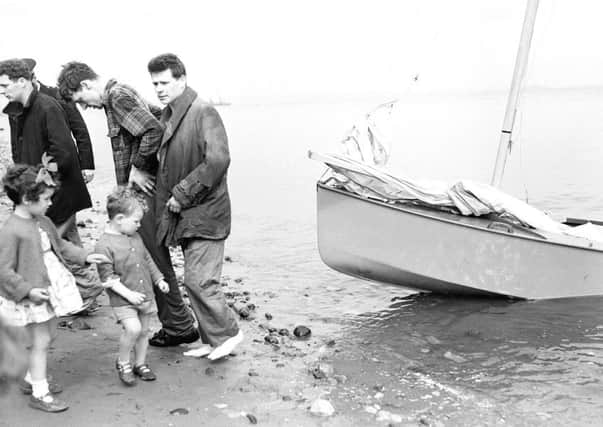Alexander McCall Smith: How you too can become Master and Commander


With the weather beginning to improve – or thinking of starting to improve – the thoughts of many people turn to buying a boat. This is a curious thing, as the proportion of people who actually have a boat is quite small. And yet there is research somewhere – or, if there isn’t there should be – that shows that just about everyone at some time or another thinks “Wouldn’t it be nice to have a boat?” In many cases that is as far as it goes; in others, the thought becomes a reality and life as they knew it changes forever. That is the essential revelation of boat ownership: nothing is ever the same.
Of course, many people do not realise that having a boat is well within their means. Boats can obviously be extremely expensive: a good number of the sleek yachts to be seen in the cruising grounds of the Caribbean and the Mediterranean will not be the fruits of honest labour, but are the status symbols of hedge-fund managers and the like. These boats usually bring unhappiness, in a contemporary Faustian sense, perhaps, as the owners of super yachts will always be jealous of those whose yachts are bigger than theirs. They are just that sort of person. So when, from a tiny passing boat, or from the crowded platform of a cheap and cheerful cruise ship, one sees these people basking on recliners on their pristine teak decks, do not imagine that they are happy. They are not.
Advertisement
Hide AdAdvertisement
Hide AdAt the other end of the spectrum – where most of us find ourselves – the urge to have a boat can be very easily satisfied. Small, knockabout boats are not at all expensive, especially if acquired second-hand. A rowing boat may be bought for a few hundred pounds, as may a kayak. These are boats, and they float, if put in the water the right way up. That is something you should perhaps be certain of before you put your newly acquired boat in the water. You should also familiarise yourself with bungs. These, to use land-based language, are the corks that boats have. You will find them down at the bottom, usually at the back (what we call the stern). Make sure the cork is in, or your boat will fill with water and sink.
You should also be careful what bit of water you put your boat into. Broadly speaking, water falls into two categories: saline and non-saline. Saline water is known as the sea, and it is very dangerous in every respect. Non-saline water is to be found in rivers, lochs and canals. You can put your boat into a river, but remember that when you put a boat in a river it tends to end up in a different place from the place in which it was first launched.
A loch is a safe bet, although a large loch can get rough in the middle if the wind blows up. As a general rule, the wind is always blowing up, especially during those months in which it is not meant to be blowing up. There are also certain places where the wind is so strong that any form of boating is not recommended. Scotland is one of those places. Greece is another, where there is a wind called the Meltemi that blows up every afternoon.
People who buy boats usually have no idea where they want to go in them. As a result, most boats you see in coastal waters are not going anywhere at all, but are simply circling about before they return to the place from which they set out. These places are called marinas, and are highly profitable to the people who run them. They have shops there known as chandleries that will sell you things for your boat. These things are regularly needed as most things already on boats will fall into the sea and require to be replaced.
The crew of boats also regularly fall into the sea and require to be replaced. To limit the need for replacement, people wear life jackets. These are now triggered by exposure to water and are self-inflating. In Scotland, where we are all exposed to water in the atmosphere, these life jackets may inflate at odd moments. These occasions can be treated as practice drills.
Many delights await you if you are fortunate enough to sail on a slightly larger boat (one with a cabin). These are equipped with galleys, where food such as cold sausages, may be prepared. They also have toilets, known as the heads, which are designed to be ecologically sensitive and therefore do not work.
Calling in on a harbour in one’s boat is a very particular pleasure. Medical attention will usually be available, and thereafter one may go to a harbour pub and listen to people singing about being out at sea. The usual song is Spanish Ladies, although you will hear The Mingulay Boat Song in places like Stornaway or Ullapool. You do not need to know the words of these songs to sing them to some effect.
The happiest day of your life is the day you buy your boat. An even happier day is the day you sell it. The bit in between can be full of joy, too, in its special way. Read Patrick O’Brian and find all about it. Or Kenneth Grahame, who famously wrote that there is no greater pleasure than messing about with boats. Or did he say that boats messed about with us?
